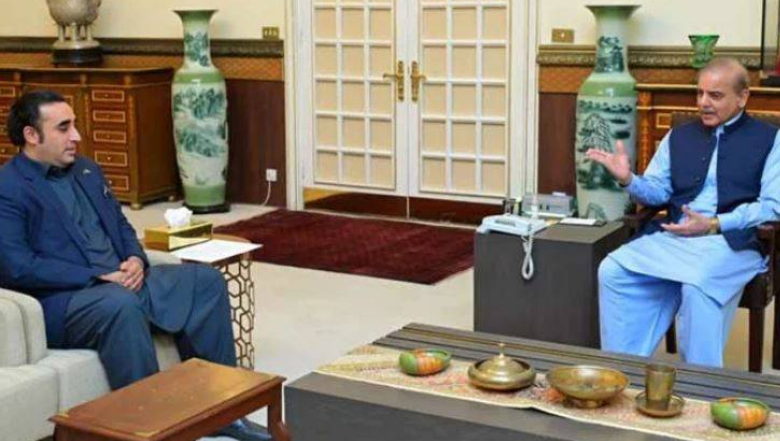Islamabad (Web Desk): Prime Minister Shehbaz Sharif on Thursday announced that no new canals will be built without mutual understanding from the Council of Common Interests (CCI).
The decision follows widespread backlash within the country and a wave of uncertainty stirred by India’s abrupt declaration that it would suspend participation in the Indus Waters Treaty (IWT).
Addressing a joint presser with Pakistan Peoples Party (PPP) Chairman Bilawal Bhutto Zardari, the premier confirmed that the federal government would cease any further canal development until all provinces agree.
He emphasized that no step forward would be taken without collective approval through the CCI, which is scheduled to convene on May 2.
The decision was framed as a gesture of cooperation, aiming to ease tensions and promote inter-provincial unity.
Speaking on the occasion, Bilawal Bhutto expressed gratitude that the government had acknowledged the concerns raised by the public and the PPP.
He welcomed the decision to defer canal construction and voiced optimism about a constructive outcome from the upcoming CCI session.
The PPP chief also slammed India’s actions, branding the suspension of the IWT not only as unlawful under international treaty law but as a morally indefensible act.
Bilawal Bhutto Zardari expressed determination to take up Pakistan's case at international level and give a befitting response to India.
Pledging solidarity, Bilawal said the PPP would work with the government to defend Pakistan’s interests on both national and international fronts.
He assured the public that the matter would not be taken lightly and that efforts would continue to ensure all provinces are treated equitably.
Earlier, a key meeting was held between Prime Minister Shehbaz Sharif PPP Chairman Bilawal Bhutto Zardari.
It was said that water rights of all provinces are enshrined in the Water Apportionment Accord-1991 and Water Policy-2018; with the consensus of all stakeholders.
To allay the concerns of all provinces and to ensure Pakistan’s food and ecological security, a committee is being formed with representation from the federation and all provinces.
The committee will propose solutions to Pakistan’s long term agriculture needs and water use of all provinces in line with the two consensus documents.
It was said that water is one of the most precious commodities and the makers of the Constitution recognized this, mandating all water disputes to be resolved amicably through consensus and concerns of any province shall be addressed through due diligence amongst all stakeholders.
The canal project, part of a broader scheme to revamp irrigation across southern Punjab, was inaugurated on February 15 by Army Chief General Asim Munir and Punjab Chief Minister Maryam Nawaz in the Cholistan region.
Though touted as a major leap forward in agricultural development, the move sparked immediate criticism from various quarters, particularly from Sindh.
The province expressed concerns over potential impacts on its water share, culminating in the Sindh Assembly unanimously opposing the initiative through a resolution passed in March.
Since then, political resistance and grassroots protests have intensified, with voices from opposition groups and even allies within the ruling coalition—including the PPP—rallying against the project.
Demonstrators have raised concerns about fairness in water distribution and the lack of inter-provincial consensus.


